
Discover the Serene Eschnerberg in Liechtenstein
Eschnerberg, a tranquil hill range in Liechtenstein, is a hidden gem for nature lovers and history buffs alike. Nestled between the Rhine Valley and the lush forests, Eschnerberg offers breathtaking views and a peaceful retreat from the bustling cities. The area is rich in natural beauty, with well-marked hiking trails that cater to both casual walkers and seasoned hikers. As you traverse the scenic paths, you'll encounter diverse flora and fauna, making it a perfect spot for photography and nature observation. Apart from its natural allure, Eschnerberg is steeped in history. The region boasts ancient settlements dating back to the Bronze Age. The Archaeological Trail is a must-visit, guiding you through historical sites with informative panels that tell the story of the early inhabitants. At the summit, you will find the ruins of the medieval Wildschloss Castle, offering panoramic views of the surrounding landscape and a glimpse into the past. Eschnerberg is also a great place to experience local culture. The nearby village of Eschen is known for its charming architecture, cozy cafés, and friendly locals. Take some time to explore the village, visit the local museum, and enjoy traditional Liechtenstein cuisine. Whether you're seeking adventure, history, or a quiet escape, Eschnerberg provides a unique and enriching experience.
Local tips in Eschnerberg
- Wear sturdy hiking boots as the trails can be uneven and steep in some areas.
- Visit early in the morning to avoid crowds and enjoy the tranquility of the area.
- Bring a picnic to enjoy at one of the scenic spots along the trails.
- Check the weather forecast before your visit, as conditions can change quickly in the mountains.
- Don't miss the Archaeological Trail for a fascinating glimpse into the region's ancient history.
- Carry a map or use a GPS device as some trails may not be well-marked.
- Take time to explore the nearby village of Eschen and its local attractions.
Discover the Serene Eschnerberg in Liechtenstein
Eschnerberg, a tranquil hill range in Liechtenstein, is a hidden gem for nature lovers and history buffs alike. Nestled between the Rhine Valley and the lush forests, Eschnerberg offers breathtaking views and a peaceful retreat from the bustling cities. The area is rich in natural beauty, with well-marked hiking trails that cater to both casual walkers and seasoned hikers. As you traverse the scenic paths, you'll encounter diverse flora and fauna, making it a perfect spot for photography and nature observation. Apart from its natural allure, Eschnerberg is steeped in history. The region boasts ancient settlements dating back to the Bronze Age. The Archaeological Trail is a must-visit, guiding you through historical sites with informative panels that tell the story of the early inhabitants. At the summit, you will find the ruins of the medieval Wildschloss Castle, offering panoramic views of the surrounding landscape and a glimpse into the past. Eschnerberg is also a great place to experience local culture. The nearby village of Eschen is known for its charming architecture, cozy cafés, and friendly locals. Take some time to explore the village, visit the local museum, and enjoy traditional Liechtenstein cuisine. Whether you're seeking adventure, history, or a quiet escape, Eschnerberg provides a unique and enriching experience.
When is the best time to go to Eschnerberg?
Iconic landmarks you can’t miss
Obere Burg
Explore the stunning Obere Burg, a historical landmark in Schellenberg, and immerse yourself in the rich culture and breathtaking views of Liechtenstein.
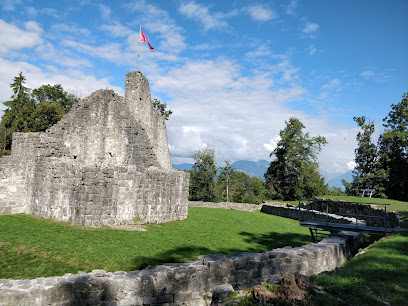
Bäuerliches Wohnmuseum
Discover the rich rural heritage of Liechtenstein at the Bäuerliches Wohnmuseum in Schellenberg, showcasing traditional life through fascinating exhibits.
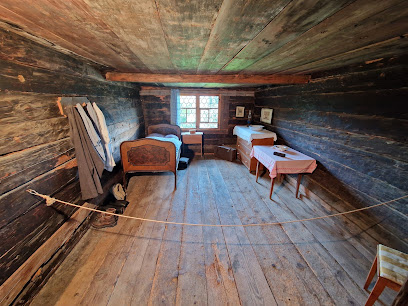
Gletscherschliffe
Explore the stunning Gletscherschliffe in Gamprin, a must-visit destination for nature lovers and hiking enthusiasts seeking breathtaking views.
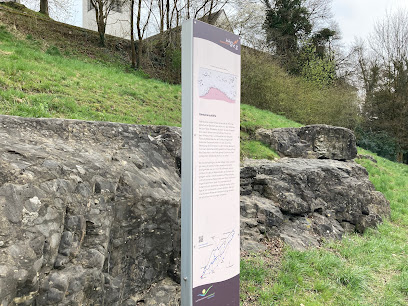
Russian Monument
Discover the historical significance of the Russian Monument in Schellenberg, a breathtaking tribute set against stunning landscapes.
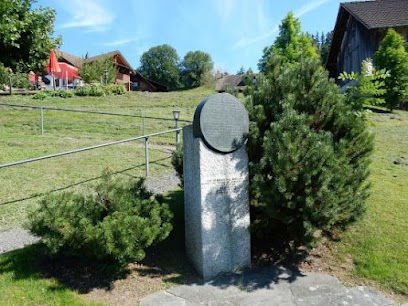
ليخشتاين
Explore the rich heritage of Liechtenstein at the National Museum in Vaduz, featuring diverse exhibits from archaeology to contemporary art.

Riet-Bänkchen
Discover Riet-Bänkchen, a serene tourist attraction in Mauren, where natural beauty meets cultural richness for an unforgettable retreat.
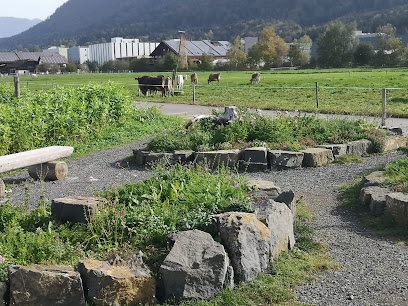
Unmissable attractions to see
Burg Gutenberg
Explore Burg Gutenberg in Balzers, Liechtenstein: a medieval castle with stunning views, rich history, and cultural events.
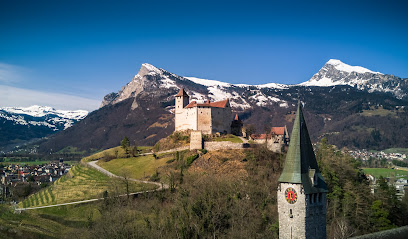
Kathedrale St. Florin
Discover Vaduz Cathedral: A neo-Gothic architectural gem, a spiritual haven, and the final resting place of Liechtenstein's royalty.
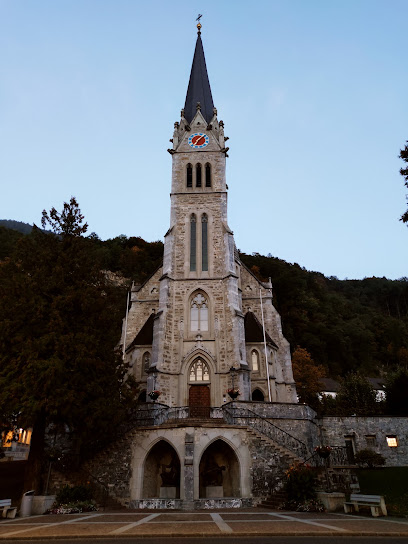
Vaduz Citytrain AG
Discover Vaduz's charm with a scenic Citytrain tour: history, culture, and stunning views in a relaxing 35-minute ride.
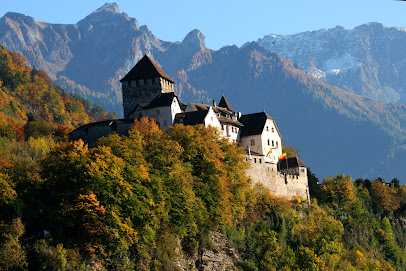
Alte Rheinbrücke
Walk or cycle across this historic covered bridge connecting Switzerland and Liechtenstein, offering scenic views and a unique cultural experience.
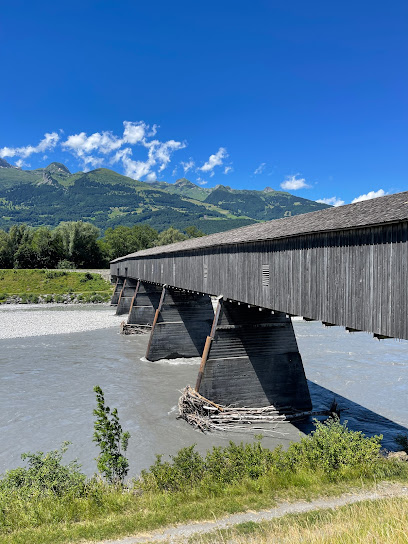
Kunstmuseum Liechtenstein
Explore modern and contemporary art in the heart of Vaduz at the iconic Kunstmuseum Liechtenstein, featuring international collections and striking architecture.
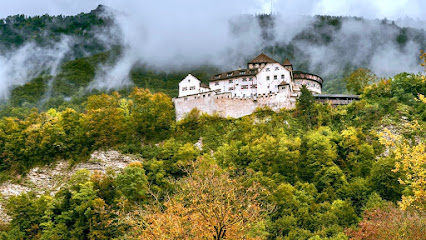
Liechtensteinisches LandesMuseum
Explore Liechtenstein's rich history, culture, and natural environment at the Liechtenstein National Museum in Vaduz.
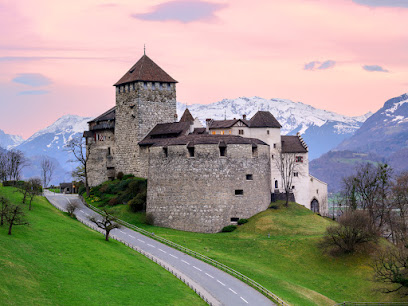
Postmuseum Vaduz
Explore Liechtenstein's postal history through its exquisite stamps and fascinating exhibits at the Postmuseum Vaduz.
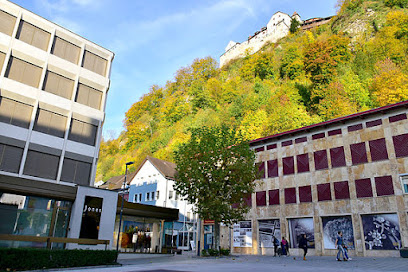
Gafleisattel
Escape to Gafleisattel for breathtaking Alpine views, diverse hiking trails, and a tranquil nature experience in Liechtenstein.
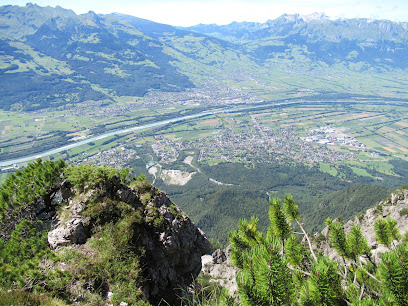
Schatzkammer Liechtenstein
Uncover the rich history and exquisite artifacts of Liechtenstein at Schatzkammer, a unique museum in Vaduz.
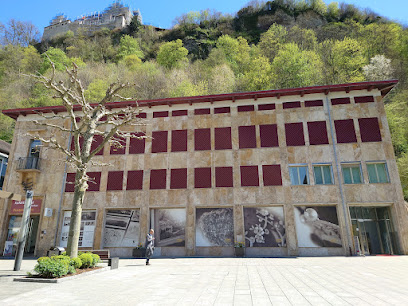
Naturpark Haberfeld
Escape to Naturpark Haberfeld in Vaduz: A serene retreat offering scenic beauty, tranquil paths, and a refreshing connection with nature.
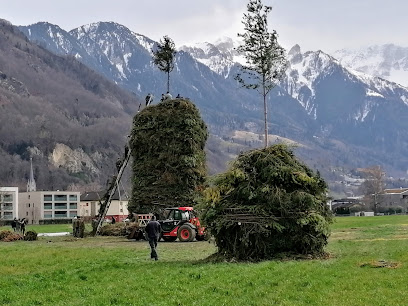
Dreiländereck AT/CH/FL
Experience the unique convergence of Austria, Switzerland, and Liechtenstein at this tri-border landmark with stunning Alpine views and rich cultural history.
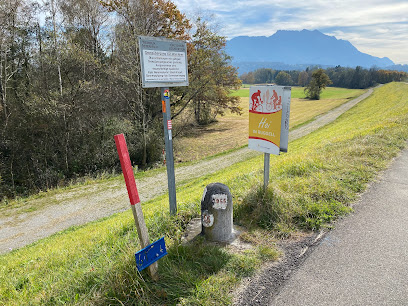
Mittelpunkt von Liechtenstein
Find the heart of Liechtenstein: A scenic spot marking the geographical center of this charming Alpine principality near Silum.
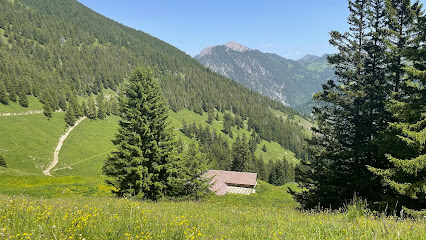
Wasserfall Rietli
Discover the serene beauty of Wasserfall Rietli in Buchs, Switzerland: a perfect escape into nature's tranquility and picturesque landscapes.
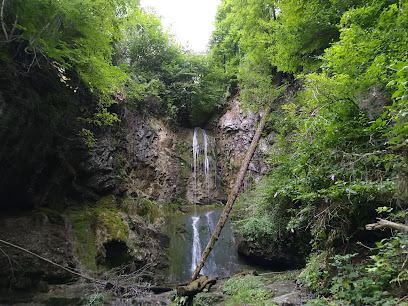
Chemi
Explore Chemi's scenic hiking trails in Silum, Liechtenstein, offering a tranquil escape into diverse alpine landscapes for all skill levels.
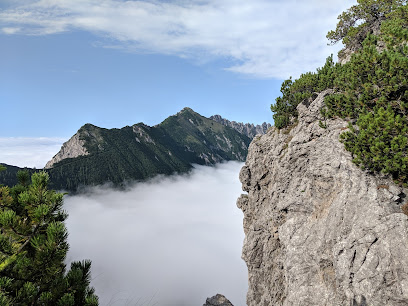
Küefer-Martis-Huus
Explore the rich artisan heritage of Liechtenstein at Küfer-Martis-Huus in Ruggell, a historical landmark showcasing traditional crafts and culture.
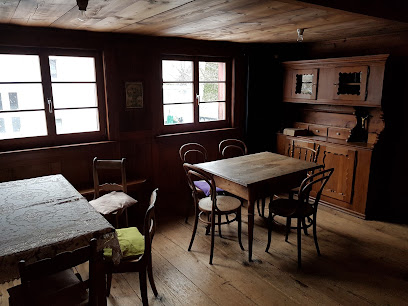
Essential places to dine
Wirtschaft zum Löwen
Experience the authentic flavors of Liechtenstein at Wirtschaft zum Löwen in Schellenberg – where local cuisine meets warm hospitality.
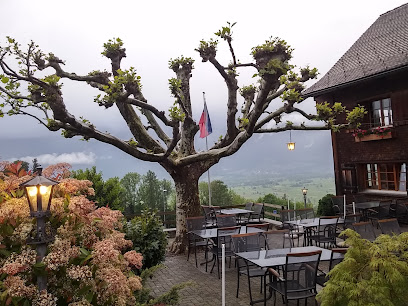
St. Martins Pub am Platz
Experience authentic Irish hospitality at St. Martins Pub am Platz in Eschen - where great food meets lively atmosphere.
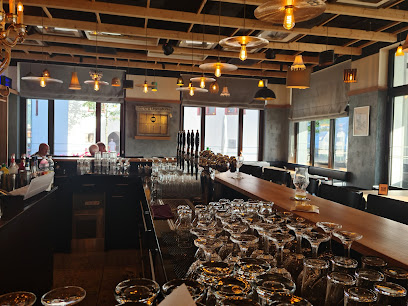
ESSwerk
Discover exquisite local cuisine at ESSwerk in Eschen—a delightful restaurant where every meal tells a story of flavor and tradition.
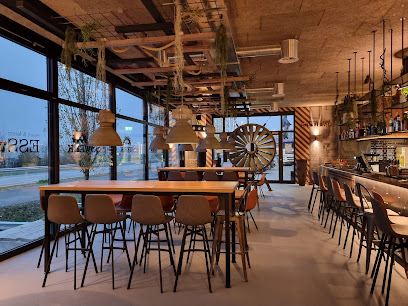
Weinlaube
Discover the exquisite flavors of Liechtenstein at Weinlaube in Schellenberg - where history meets culinary excellence.
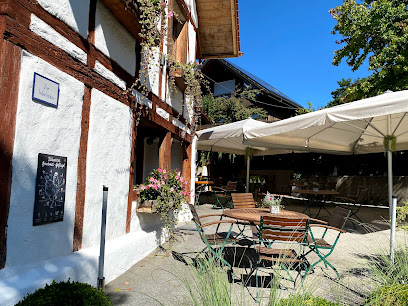
tenn
Discover culinary excellence at Tenn in Ruggell, where authentic flavors meet modern flair in an inviting atmosphere.
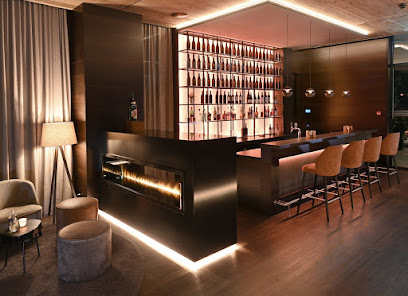
Seven Heavens - Skylounge
Experience upscale dining at Seven Heavens - Skylounge with stunning views and exquisite cuisine in Eschen.
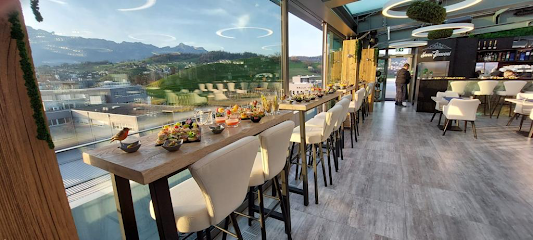
Jägerstube Zum Kreuz
Experience authentic Liechtenstein cuisine at Jägerstube Zum Kreuz in Schellenberg – where tradition meets taste.
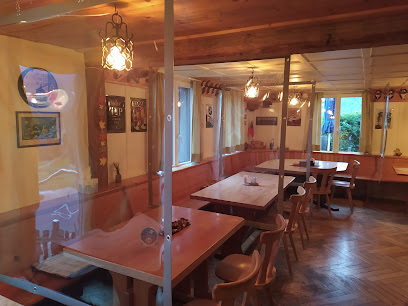
Markets, malls and hidden boutiques
American Bagel&Coffee Co.
Delight in freshly baked bagels and artisan coffee at American Bagel & Coffee Co. in Vaduz, a must-visit for food lovers and tourists alike.
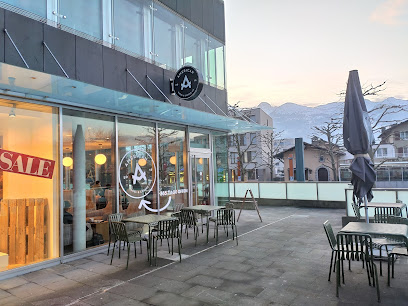
Hoi Liechtenstein - Souvenir Boutique
Explore Hoi Liechtenstein for unique souvenirs, gourmet foods, and exquisite wines in the heart of Vaduz, the capital of Liechtenstein.
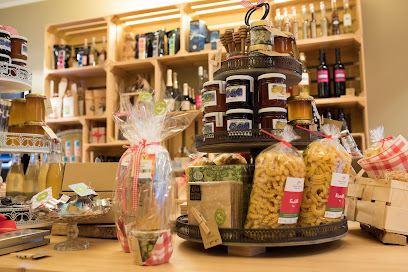
HUBER World of Watches
Experience luxury and craftsmanship at Huber World of Watches, Vaduz's premier destination for exquisite timepieces.
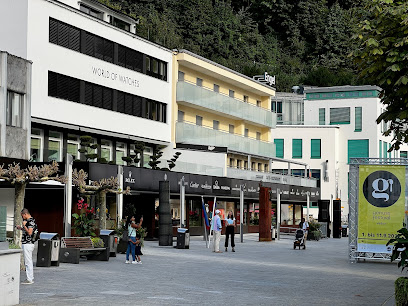
Thöny AG Schreibwaren
Discover Thöny AG Schreibwaren in Vaduz, a haven for stationery enthusiasts and artists, offering unique paper products and creative inspiration.
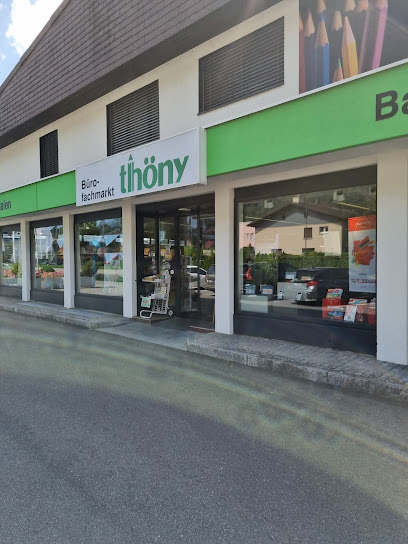
Spielplus Anstalt
Explore Spielplus Anstalt in Vaduz, a captivating toy store offering a wonderful selection of toys, games, and creative experiences for all ages.
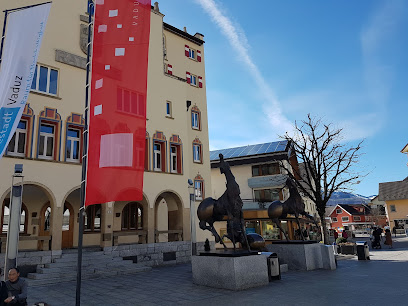
Bärgwelten
Discover Bärgwelten in Vaduz for an exquisite selection of fashion, accessories, and local liquors in a stylish shopping environment.
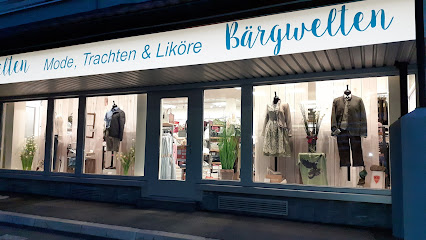
Vip's Men's Fashion
Explore Vip's Men's Fashion in Vaduz for an exquisite selection of stylish men's clothing and exceptional customer service.
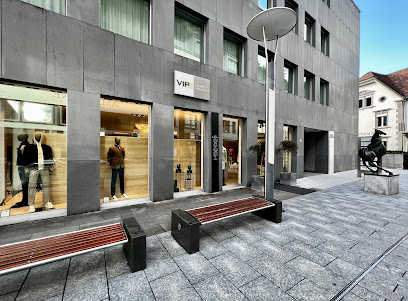
W&M Sport
Discover W&M Sport in Vaduz for all your sporting needs, offering specialized gear for running, skiing, and tennis enthusiasts in a welcoming atmosphere.
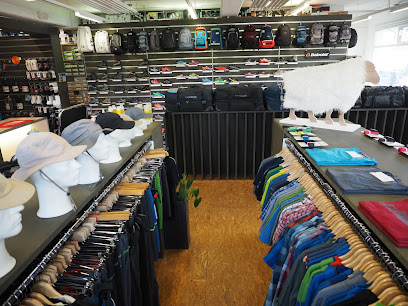
Liechtenkind Naturkosmetik & Handgemachte Naturprodukte
Explore eco-friendly beauty and handmade treasures at Liechtenkind Naturkosmetik in Gamprin, a haven for natural cosmetics lovers.
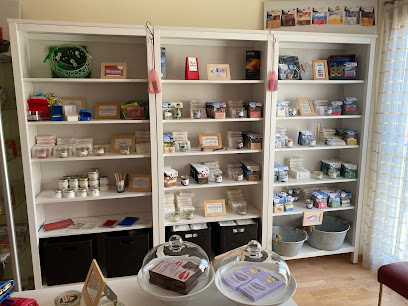
PARTYBOX Anstalt
Discover an extensive range of costumes, party supplies, and unique gifts at PARTYBOX Anstalt in Schaan, the ultimate destination for party enthusiasts.
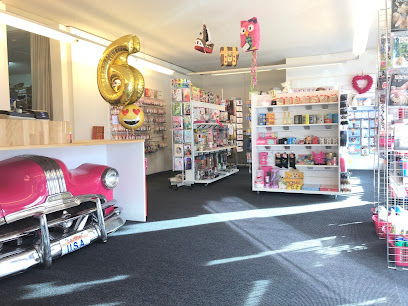
Central Plaza
Explore Central Plaza in Vaduz for exquisite gifts, unique souvenirs, and stunning watches that capture the essence of Liechtenstein.
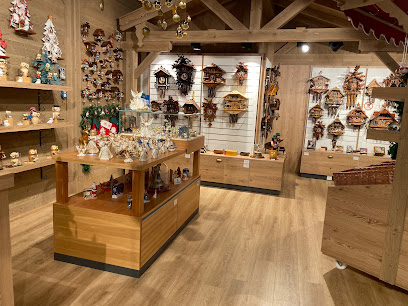
Greber AG
Discover Greber AG in Vaduz: a delightful blend of home goods, kitchen supplies, and a cozy coffee shop for an unforgettable shopping experience.
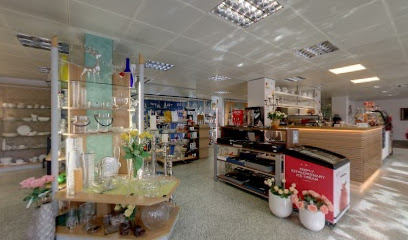
Bimbam.li
Discover unique treasures and local crafts at Bimbam.li, Mauren's charming gift shop offering a delightful shopping experience.
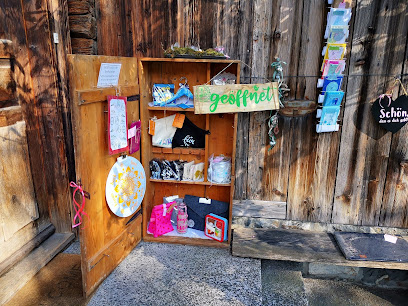
Dolce AG
Experience the finest artisanal chocolates and unique gifts at Dolce AG in Vaduz, where every visit is a delightful journey into sweet indulgence.
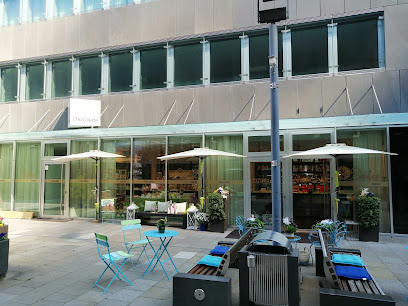
Thöny ltd.
Discover Thöny Ltd. in Vaduz, your one-stop shop for quality office supplies and unique toys, perfect for tourists and locals alike.
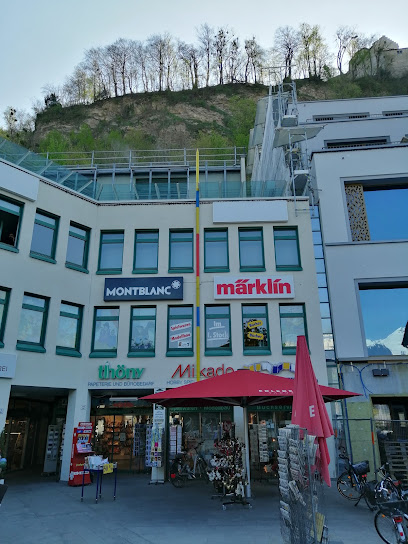
Essential bars & hidden hideouts
Esquire Bar.Bistro
Discover the vibrant atmosphere and exquisite flavors at Esquire Bar.Bistro in Vaduz, a must-visit for culinary enthusiasts.
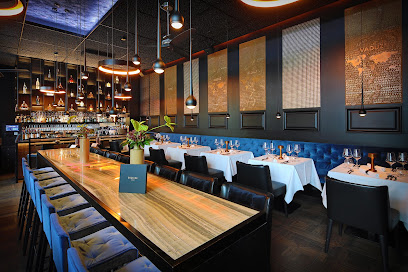
St. Martins Pub am Platz
Discover the vibrant St. Martins Pub am Platz in Eschen, where delicious food, fine drinks, and lively ambiance create the perfect pub experience.
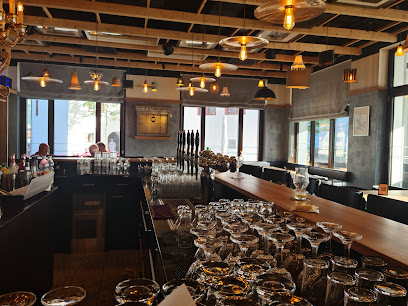
Zwei Bar
Enjoy a vibrant nightlife experience at Zwei Bar in Vaduz, where delightful drinks and a cozy atmosphere await every visitor.
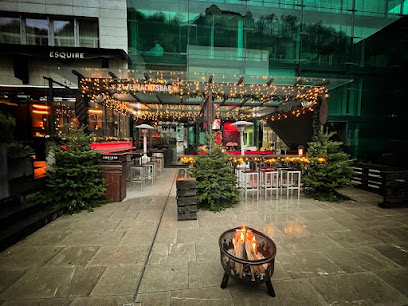
Take 5 Vaduz
Discover the lively ambiance of Take 5 Vaduz, where exquisite drinks and vibrant nightlife come together for an unforgettable experience.
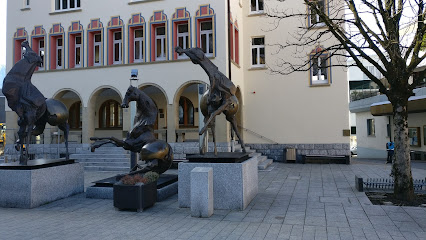
La Piazza Bar & Bistro
Discover the charming La Piazza Bar & Bistro in Schaan, where exquisite cuisine meets a welcoming atmosphere, perfect for tourists seeking local flavors.
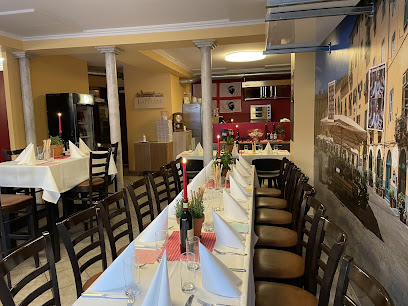
WY Weinbar
Experience the finest wines and a warm atmosphere at WY Weinbar in Schaan, where every sip tells a story.
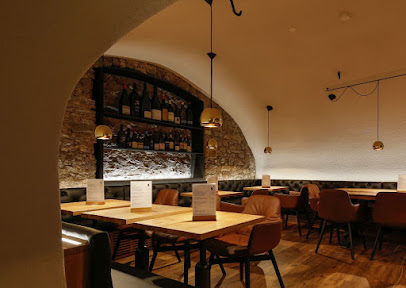
Ethno Cafe Bar
Discover the vibrant atmosphere and cultural delights at Ethno Cafe Bar in Schaanwald, where tradition meets modern charm.
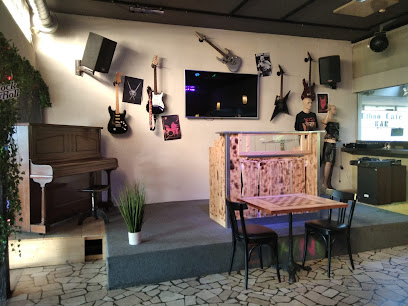
Black Pearl Bar
Experience the vibrant nightlife at Black Pearl Bar in Triesen, where stylish ambiance meets delightful drinks and lively events.
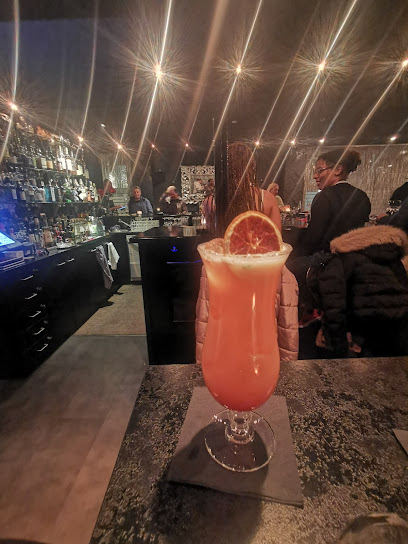
Lömagarta
Experience the best of Swiss beer culture at Lömagarta, a charming beer garden in Vaduz, perfect for relaxation and local flavors.
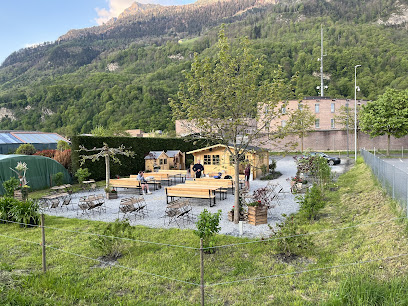
Long John Bar
Experience the vibrant nightlife and local culture at Long John Bar, a must-visit destination for drink lovers in Schaan.
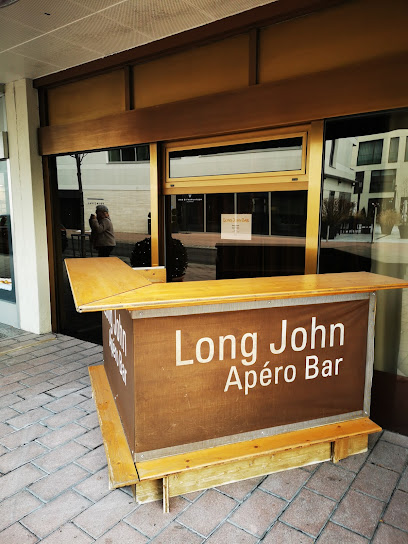
Räbabar
Experience the warmth and local charm of Räbabar, a cozy bar in Mauren serving a delightful selection of drinks and a welcoming atmosphere.
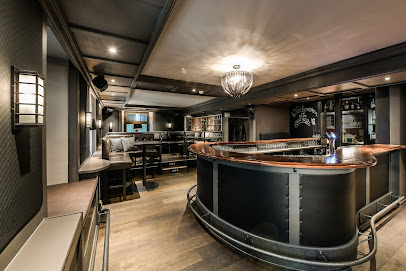
Hinterdörfler Funkenplatz
Discover the lively charm of Hinterdörfler Funkenplatz, a top bar in Eschen, offering local drinks and a vibrant atmosphere for all visitors.
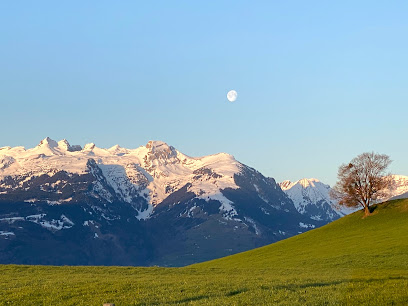
Andy's Bunker
Experience the vibrant nightlife of Schaan at Andy's Bunker, a cozy bar offering a unique atmosphere and delightful drinks.

Elch bar
Discover Elch Bar in Malbun - a cozy retreat with stunning mountain views and a delightful selection of drinks to enjoy!
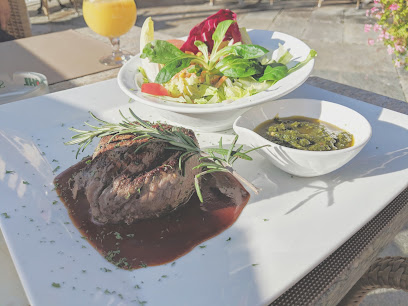
Local Phrases about Eschnerberg
-
- HelloHallo
[ha-lo] - GoodbyeAdieu
[a-dyuh] - YesJa
[yah] - NoNein
[nine] - Please/You're welcomeBitte
[bi-teh] - Thank youDanke
[dahn-keh] - Excuse me/SorryEntschuldigung
[ent-shool-dee-gung] - How are you?Wie geht es Ihnen?
[vee geyt es in-en] - Fine. And you?Gut. Und Ihnen?
[goot oont in-en] - Do you speak English?Sprechen Sie Englisch?
[shpre-khen zee eng-leesh] - I don't understandIch verstehe nicht
[ikh fer-shteh-eh nikht]
- HelloHallo
-
- I'd like to see the menu, pleaseIch möchte bitte die Speisekarte sehen
[ikh merkhte bi-teh dee shpey-zuh-kahr-teh zeh-en] - I don't eat meatIch esse kein Fleisch
[ikh es-se kine flysh] - Cheers!Prost!
[prohst] - I would like to pay, pleaseIch möchte bitte zahlen
[ikh merkhte bi-teh tsah-len]
- I'd like to see the menu, pleaseIch möchte bitte die Speisekarte sehen
-
- Help!Hilfe!
[hil-feh] - Go away!Geh weg!
[gey vehg] - Call the Police!Rufen Sie die Polizei!
[roo-fen zee dee po-lee-tsey] - Call a doctor!Rufen Sie einen Arzt!
[roo-fen zee i-nen ahrts] - I'm lostIch habe mich verirrt
[ikh hah-beh mikh fay-rirt] - I'm illIch bin krank
[ikh been krahnk]
- Help!Hilfe!
-
- I'd like to buy...Ich möchte ... kaufen
[ikh merkhte ... kow-fen] - I'm just lookingIch schaue nur
[ikh shou-eh noor] - How much is it?Wie viel kostet es?
[vee feel koh-stet es] - That's too expensiveDas ist zu teuer
[dahs ist tsoy toy-er] - Can you lower the price?Können Sie den Preis senken?
[kern-en zee den preys zeng-ken]
- I'd like to buy...Ich möchte ... kaufen
-
- What time is it?Wie spät ist es?
[vee shpeyt ist es] - It's one o'clockEs ist ein Uhr
[es ist iyn oor] - Half past (10)Halb zehn
[halb tseen] - MorningMorgen
[mor-gen] - AfternoonNachmittag
[nahk-mit-tahk] - EveningAbend
[ah-bent] - YesterdayGestern
[gehs-tern] - TodayHeute
[hoy-teh] - TomorrowMorgen
[mor-gen] - 1Eins
[ayns] - 2Zwei
[tsvay] - 3Drei
[dry] - 4Vier
[feer] - 5Fünf
[fuhnf] - 6Sechs
[zeks] - 7Sieben
[zee-ben] - 8Acht
[ahkht] - 9Neun
[noyn] - 10Zehn
[tseen]
- What time is it?Wie spät ist es?
-
- Where's a/the...?Wo ist ein/der...?
[vo ist iyn/dehr] - What's the address?Was ist die Adresse?
[vahs ist dee ah-dreh-suh] - Can you show me (on the map)?Können Sie mir zeigen (auf der Karte)?
[kern-en zee meer tsie-gen (owf dehr kahr-teh)] - When's the next (bus)?Wann kommt der nächste (Bus)?
[vahn kohmt dehr nikh-ste (boos)] - A ticket (to ....)Eine Fahrkarte (nach ....)
[i-nuh fahr-kahr-teh (nahkh ....)]
- Where's a/the...?Wo ist ein/der...?
History of Eschnerberg
-
Eschnerberg is a treasure trove for history enthusiasts, with its roots tracing back to ancient times. Archaeological excavations have uncovered evidence of Celtic and Roman settlements in the region. The hilltop of Schellenberg, part of the Eschnerberg range, revealed remnants of a prehistoric settlement dating back to the Bronze Age. These findings include tools, pottery, and other artifacts that provide a glimpse into the lives of the early inhabitants of the area.
-
The medieval period left an indelible mark on Eschnerberg, with the construction of several castles and fortifications. The most notable are the ruins of the 'Obere Burg' and 'Untere Burg' in Schellenberg. Built in the 12th and 13th centuries, these castles served as strategic defensive strongholds and residences for local nobility. Although in ruins today, they offer a fascinating insight into medieval architecture and the feudal system that dominated the region.
-
The history of Eschnerberg is closely tied to the formation of the Principality of Liechtenstein. In 1719, the counties of Schellenberg and Vaduz were united to form the Principality under the rule of Prince Johann Adam Andreas of Liechtenstein. This unification was a significant milestone, as it marked the establishment of the modern state of Liechtenstein, with Eschnerberg playing a central role in its territorial and political history.
-
Eschnerberg is rich in religious and cultural heritage, with several significant sites that reflect the spiritual history of the region. The Chapel of St. Mamerten, located on the Eschnerberg, is a prime example. This chapel, dating back to the 9th century, is one of the oldest religious structures in Liechtenstein. It has been a place of worship and pilgrimage for centuries, showcasing the enduring religious traditions of the area.
-
In contemporary times, Eschnerberg has become a symbol of natural beauty and historical preservation. The area is crisscrossed with well-marked hiking trails that offer scenic views and access to historical sites. Efforts to preserve the ruins and archaeological sites have made Eschnerberg a significant destination for both history buffs and nature lovers. The local communities continue to celebrate their rich heritage through festivals, educational programs, and cultural events.
Eschnerberg Essentials
-
Eschnerberg is located in the northern part of Liechtenstein, near the border with Austria and Switzerland. The nearest major airport is Zurich Airport in Switzerland, around 120 kilometers away. From Zurich, you can take a train to Sargans, Switzerland, followed by a bus to Eschen. Alternatively, you can rent a car and drive, which takes approximately 1.5 to 2 hours. Another option is to fly into Friedrichshafen Airport in Germany, which is about 80 kilometers away and offers similar train and bus connections.
-
Eschnerberg and the surrounding areas are well-connected by public transportation. Buses operated by LIEmobil run frequently and connect major towns and villages. Taxis are available but can be expensive. Renting a car is a convenient option if you plan to explore the region extensively. Biking is also popular, with many scenic cycling routes available.
-
The official currency in Liechtenstein is the Swiss Franc (CHF). Credit and debit cards are widely accepted in hotels, restaurants, and shops. However, it's advisable to carry some cash for smaller establishments or rural areas. ATMs are available in Eschen and other nearby towns for easy cash withdrawal.
-
Eschnerberg is generally a very safe destination for tourists. Crime rates are low, and violent crimes are rare. However, it's always wise to take standard precautions, such as not leaving valuables unattended and being aware of your surroundings, especially in crowded places. There are no specific high-crime areas targeting tourists.
-
In case of emergency, dial 112 for immediate assistance. Medical facilities are available in nearby towns such as Vaduz and Schaan. It is advisable to have travel insurance that covers medical emergencies. Pharmacies are available for minor health issues, and most pharmacists speak English.
-
Fashion: Do dress in layers, as the weather can change quickly. Avoid overly casual attire when dining in upscale restaurants. Religion: Do respect local customs and traditions. When visiting churches, dress modestly and keep noise to a minimum. Public Transport: Do be punctual, as buses run on strict schedules. Don't speak loudly or play music on public transport. Greetings: Do greet locals with a friendly 'Grüezi' (hello) or 'Guten Tag' (good day). A handshake is a common form of greeting. Eating & Drinking: Do try local delicacies such as Käsknöpfle (cheese noodles). Don't tip excessively; rounding up the bill is usually sufficient.
-
To experience Eschnerberg like a local, take part in community events and festivals, such as the annual Wine Festival in Eschen. Visit local markets to buy fresh produce and traditional crafts. Hiking is a popular activity; the Eschnerberg Trail offers stunning views and historical landmarks. Engage with locals, who are typically friendly and happy to share stories about the region's history and culture.
Nearby Cities to Eschnerberg
-
Things To Do in Mauren
-
Things To Do in Ruggell
-
Things To Do in Eschen
-
Things To Do in Gamprin
-
Things To Do in Schaan
-
Things To Do in Vaduz
-
Things To Do in Triesenberg
-
Things To Do in Balzers
-
Things To Do in Dornbirn
-
Things To Do in Bregenz
-
Things To Do in Arosa
-
Things To Do in Davos
-
Things To Do in St. Anton am Arlberg
-
Things To Do in Zurich
-
Things To Do in St. Moritz








